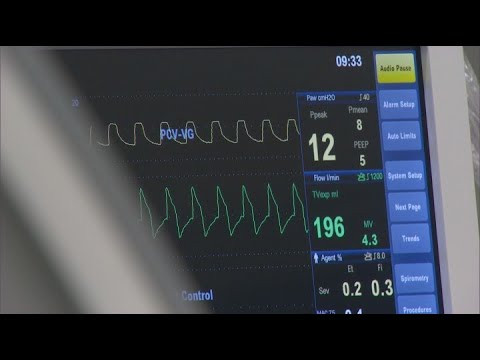A Six-Day Nightmare in New Zealand's Public Hospital System
'Six days in the public hospital system are an exercise in anxiety, frustration, irritability and, finally, numb acceptance of our broken health system.' This stark statement encapsulates the experience of one patient, Mary Hearn, whose recent hospital stay laid bare the deep-seated issues plaguing New Zealand's healthcare infrastructure. Her ordeal wasn't an isolated incident; it highlights a systemic failure that demands urgent attention.
The Pervasive Problem of Waiting
The dominant feature of Hearn's hospital stay was waiting. Waiting for a diagnosis, for a bed (a staggering 16 hours), and for someone to acknowledge her suffering. This interminable waiting, she describes, reduced her to a state of 'a quivering wreck incapable of rational thought'. The constant delays and lack of timely attention are not anomalies; they represent a pervasive issue within the system, leaving patients feeling neglected and their concerns overlooked. The sheer volume of patients needing care often leads to delays and a lack of immediate attention, a situation exacerbated by staff shortages.
The Human Cost of Delays
The sheer scale of the waiting times is unacceptable. The ordeal of waiting for 16 hours for a bed is a harrowing illustration of a systemic problem that places immense pressure on patients already vulnerable due to their illness. The system's failure to provide timely care can have far-reaching consequences, impacting a patient's physical and mental well-being. This is more than just inconvenience; it has the potential to lead to serious deterioration in health.
The Crumbling Infrastructure and Staff Shortages
Hearn's experience underscores the critical staffing shortages and the immense pressure faced by hospital staff daily. The claim by the coalition government that the 650 job losses to date aren’t having a detrimental effect on the health system is a fallacy, a dangerous misconception that ignores the reality on the ground. The narrative of a struggling system is amplified by the accounts of numerous patients, each echoing a similar experience of inadequate care and extended waiting periods. The combination of understaffing and overwhelming patient loads leaves healthcare professionals struggling to provide even basic levels of care, resulting in a system that is stretched thin and at breaking point.
The Government's Response: A Matter of Urgency
The government’s failure to address the staffing crisis is a matter of grave concern, jeopardizing the quality of care provided and the well-being of both patients and medical personnel. While political debates consume time and resources, the fundamental need for improved healthcare infrastructure and sufficient staffing remains unaddressed. The lack of decisive action to alleviate the strain on the health system is unsustainable, and the long-term consequences could be catastrophic. The situation requires immediate intervention – not just in terms of funding and resources, but also in a fundamental rethink of the healthcare system's design and implementation. The current system is failing its patients, and a significant change is desperately needed.
Beyond the Immediate Crisis: A Systemic Issue
The issues highlighted by Hearn's experience extend beyond the immediate crisis in public hospitals. The lack of adequate primary and acute health services is having a ripple effect across society. Who, then, will build our roads, teach in our classrooms, and care for our most vulnerable? This critical shortage impacts not only the immediate patients but has knock-on effects throughout the entire population, raising serious concerns about the societal impact of a crumbling healthcare system. It's a system-wide problem that requires a holistic approach to solving it. The repercussions are immense, affecting not just healthcare but society as a whole.
A Call for Systemic Reform: The Road to Recovery
The current situation isn't merely about individual cases; it's a symptom of a deeper, systemic failure within New Zealand's healthcare system. To address this crisis, we need more than just short-term solutions. A thorough, long-term strategy focusing on sustainable investment in healthcare infrastructure, workforce expansion, and improved resource allocation is crucial. Addressing the issue necessitates a multi-pronged approach involving collaboration among healthcare providers, policymakers, and the community. We must work collectively to build a health system that is robust, efficient, and responsive to the needs of all New Zealanders. Only with a decisive and comprehensive strategy can we begin to resolve this crisis and ensure our citizens can access adequate healthcare services.
The current situation in New Zealand's public hospitals demands immediate and sustained attention. The lack of funding and staff is placing incredible pressure on doctors and nurses, who are working tirelessly despite the challenging conditions. Without a coordinated effort across all levels, from policymakers to hospital administrators, the problem will only worsen. The future of New Zealand's healthcare system hangs in the balance.

















